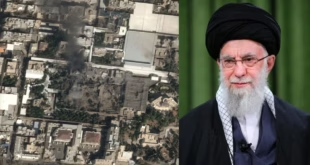In a notable development during the most recent American elections, many within the Muslim community made their voices heard, underscoring their active civic engagement despite expressing dissatisfaction with both major political parties. This election season saw heightened participation, as Muslim Americans voiced concerns on critical issues – especially the Israel-Gaza conflict – that they feel have been overlooked by elected officials. Donald Trump won the elections, and is all set to take charge of the oval office once again. Trump defeated Indian-American Kamala Harris.
According to a statement issued by Chicago-based CMMA, “In a strategic shift, some groups within the Muslim community made surprising political choices, such as endorsing third-party candidates or even supporting former President Donald Trump in key states like Michigan. This choice, while unconventional for a community often seen as loyal to Democratic causes, signals growing frustration with what many perceive as an insufficient response from Democratic leaders, particularly on foreign policy matters in the Middle East.”
“This election appears to mark a turning point for Democrats, who must now confront the gradual erosion of support among young Arab-Muslim and broader American voters. For these voters, issues of human rights and justice – especially concerning Gaza -are fundamental concerns, and the community’s shift serves as a reminder to the party to listen more closely to its base”, observed CMMA.
As the election cycle comes to a close, the Muslim community remains unified and motivated by faith, looking to the teachings of the Prophet Muhammad (SWS) as a guide for advocating for justice and peace. The clear expectation from the community is that the new administration will prioritize peace efforts and more meaningfully address Muslim Americans’ concerns.
This active participation by the Muslim community reflects a broader commitment to ensuring their voices are respected and heard in American politics, emphasizing to all political leaders the importance of addressing their constituents’ needs across the diverse spectrum of American society.
 Gawah (The Witness) – Hyderabad India Fearless By Birth, Pristine by Choice – First National Urdu Weekly From South India – Latest News, Breaking News, Special Stories, Interviews, Islamic, World, India, National News
Gawah (The Witness) – Hyderabad India Fearless By Birth, Pristine by Choice – First National Urdu Weekly From South India – Latest News, Breaking News, Special Stories, Interviews, Islamic, World, India, National News





